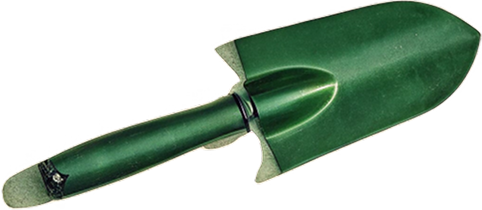Battle Against Weeds: The Homemade Weed Killer Solutions
%2520(1).avif)
Homemade weed killer
Stop herbicide overspending—grab kitchen staples like vinegar, salt, and dish soap to craft your own homemade weed killer. A simple DIY solution eliminates weeds quickly, cheaply, and safely. Skip the chemicals, spare your soil, and keep reading to discover recipes and tips for winning your weed war naturally.
Cheatsheet: Homemade Solutions to Eradicate Weeds Fast
🧰 Tools and Products You’ll Need
- White vinegar (5% acetic acid or higher)
- Salt (table or rock)
- Liquid dish soap
- Spray bottle or garden sprayer
- Measuring cup
- Protective gloves
🌱 Core Natural Recipes
- Vinegar mix: 1 gal (3.8L) vinegar + 1 cup (240g) salt + 1 tbsp (15ml) dish soap
- Boiling water: Pour 212°F (100°C) water directly on weeds; use with caution
- Lemon juice spray: Pure lemon juice in a spray bottle for cracks
⚠️ Application Tips
- Spray on dry, sunny days for best results
- Aim for midday temps above 70°F (21°C)
- Keep solution away from desired plants; non-selective action
- Repeat weekly until weeds shrivel
⚡️ Fast Facts
- DIY sprays kill weeds within 24 hours
- Vinegar 20% is 4x more effective than standard
- 80% of home gardeners report success with natural weed killers
🥗 Health & Self-Sufficiency
- Avoid synthetic chemicals—safe for edible gardens if kept off produce
- Cut household chemical reliance by over 50%
- Foster soil health; reduces toxin runoff
🔁 Step-by-Step Directions
- Mix vinegar, salt, and dish soap in spray bottle
- Wear gloves to prevent skin irritation
- Saturate leaves and stems of weeds with solution
- Monitor area for regrowth; reapply as needed
- After weeds brown, pull roots to prevent return
Battle Against Weeds: Homemade weed killer that actually earns its keep
I’ve scorched, steamed, sizzled, and spot-sprayed more weeds than I care to count, and I keep notes like a chef tweaking a sauce. Some mixes sing, some ruin the pan, and a few only taste good on Instagram.
Know your target before you pull the trigger
Annuals like chickweed and purslane fold fast with heat or acids when they’re small. Perennials like dandelion, plantain, and bermudagrass shrug at leaf burn and return from roots unless you repeat or dig.
Contact herbicides burn what they touch and work best on seedlings. Systemic herbicides move through the plant, which most homemade options do not do.
The shortlist that actually does work
Acetic acid vinegar
Household vinegar at 5 percent acetic acid singes tiny weeds, especially in full sun and low humidity. Horticultural vinegar at 20 percent hits harder, but it bites skin, eyes, and metal sprayers, so wear goggles, gloves, and use a plastic wand.
I mix 1 gallon 5 percent vinegar with 1 to 2 tablespoons of plain dish soap for annuals under 4 inches tall. For 20 percent vinegar, I add 0.5 percent nonionic surfactant by volume and keep kids and pets out until leaves dry.
“Acetic acid acts as a nonselective contact herbicide and works best on seedlings.” University of Maryland Extension
Spray on a dry day above 75 F or 24 C and aim for midday. Expect repeats on perennials and any weeds older than two weeks.
Boiling water
I kettle-weed cracks and seams where roots can’t hide deep. Rolling water at 212 F or 100 C collapses leaf cells and collars on contact.
Pour slow, keep it off irrigation heads, and top up the kettle again. I get 70 to 90 percent control on seedlings in pavers, then I brush in polymeric sand to block a comeback.
Salt, with strict limits
Sodium chloride nukes plants and your soil’s future. I reserve it for dead zones only, like gravel strips and driveway edges, never near beds, trees, or runoff paths.
If I must, I use a teaspoon of fine salt in a cup of hot water as a crack drench and follow later with a flooding rinse to protect adjacent roots. The Royal Horticultural Society warns that salt degrades soil structure and lingers.
Soap as a helper, not a killer
Surfactants reduce surface tension so sprays wet waxy leaves. A teaspoon per quart boosts stick and spread, which matters on lambsquarters, mallow, and wild lettuce.
Soap alone won’t do the job. It just helps your acid or oil get in.
Citrus and clove oil
d-Limonene and clove oil scorch foliage fast and smell like a bakery brawl. I mix 5 to 10 percent food-grade citrus oil in water with a squirt of soap for spot work on patios.
Test a tile or a tucked-away corner first since oils can mark stone and melt some plastics. Many commercial organic herbicides use these actives for a reason.
Flame weeding
A propane torch glazes cells until leaves look wet and dark, which is enough for annuals. You are not trying to incinerate the plant, just break the plumbing.
I run quick passes before planting or along bed edges with a welders’ shield. Skip near mulch on windy afternoons and keep a hose charged.
Field-tested recipes and routines
- Patio quick spray: 1 gallon 5 percent vinegar + 1 to 2 tbsp dish soap. Spray to glisten on a hot, dry day, then repeat in 5 to 7 days if green returns.
- Hardscape crack purge: Boiling water pass, then a light salt drench in the deepest joint, then sweep in jointing sand. I do this twice a season.
- Stubborn dandelion two-step: 20 percent vinegar foliar burn at noon, then pry taproot the next morning when the crown softens. Fill the hole with compost and a pinch of grass seed.
- Pre-plant stale seedbed: Rake smooth, irrigate, wait 7 to 10 days, then flame or vinegar-singe the flush. Sow right after while the surface is clean.
Timing and technique matter more than the mix
I hit seedlings at the cotyledon to two-leaf stage and I am ruthless about coverage. Dry leaves amplify burn since water dilutes acids on contact.
Repeat light hits beat one heavy drench, and a shield or cardboard saves precious foliage from drift. On perennials, plan for 3 to 5 cycles or pair with a fork.
Corn gluten meal, explained without the hype
Corn gluten meal is a preemergent that suppresses root formation on germinating seeds when applied at high rates with precise timing. It also feeds nitrogen, which can fuel any survivor.
Iowa State University’s Nick Christians pioneered it, but university trials show mixed results that hinge on timing and moisture. Typical rates are 20 pounds per 1,000 square feet or 97.6 kilograms per hectare, which is spendy for large areas.
“Expect variable control and follow up with cultivation.” Iowa State University Turfgrass
Myths to skip
Bleach is not registered as a herbicide for landscapes, and the EPA does not support its yard use. It damages soil and nearby plants and can corrode hardware.
Epsom salt is magnesium sulfate, a fertilizer, not a weed killer. It may even green up plants if magnesium is limiting.
Vodka, baking soda, cola belong in a picnic basket, not your beds. I’ve tried them, and weeds shrugged.
Numbers that change how you weed
One Palmer amaranth plant can drop over 200,000 seeds, according to University of Georgia Extension. I treat lone escapees like ticking bombs and bag them whole.
Weed seeds can persist for decades in soil, so every prevented seed matters. My rule is “no seed heads after June,” and I sleep better for it.
“Mulch 2 to 3 inches deep can cut weed emergence by 50 to 90 percent.” Cornell University Cooperative Extension
Safety first, always
Wear sealed eye protection and chemical-resistant gloves with 20 percent vinegar and citrus oils. Keep pets away until leaves dry and rinse tools after acids.
Never mix acids with chlorine products. Label your sprayer and store concentrates in original containers.
Homemade weed killer vs organic store-bought
- Homemade vinegar mixes: Cheap, immediate, great for small annuals, weak on deep-rooted perennials without repeats.
- Commercial organic herbicides with acetic acid, caprylic/capric acids, or d-limonene: Faster knockdown, better rainfastness, pricier but OMRI-listed options exist.
- Thermal tools like torches and steamers: No residue, precise, require fuel or power and steady hands.
Buying guide for the frugal perfectionist
- Look for 20 percent acetic acid labeled for herbicidal use and OMRI listing if organic practices matter to you.
- Choose a pump sprayer with a fan nozzle, Viton seals, and a pressure relief valve for acids.
- Add a foam marker or dye so you do not overlap and scorch pavers.
- Pick a torch with a trigger valve, long neck, and a CSA or UL safety rating, plus a fire extinguisher on the hip.
- Stock shatterproof goggles and nitrile gauntlet gloves for acids and oils.
Technique crossovers that save time elsewhere
The stale seedbed trick used for carrots transforms onion rows and beet beds. Flame once more just before emergence if you know the crop’s sprout date.
Boiling water doubles as a cleaning pass on mossy stone, then a broom finishes. Citrus oil cleans pruners after sap-heavy jobs and keeps the edge bright.
Anecdotes from a weedy life
I once torched chickweed at dawn and the air smelled like toasted cilantro. The bed stayed clean for two weeks, then a light vinegar hit kept it photo-ready for a shoot.
On a client’s gravel drive, one kettle, one salt drench, and fresh fines cut weeding time by 80 percent all summer. We tracked it with a clipboard and iced tea rings.
FAQ I get every spring
Is Homemade weed killer safe for pets? Keep them off sprayed areas until dry and never pool acids where paws walk.
Will vinegar kill my lawn? Yes where it lands, so use a shield or wipe with a sponge on invaders like plantain inside turf.
How long until I see results? Leaves collapse in 2 to 24 hours in sun with acids and oils, while boiling water is instant theater.
The bigger plan that keeps weeds from winning
Mulch 2 to 3 inches or 5 to 7.5 cm, edge cleanly, and feed plants on time so canopies close fast. I set drip lines to avoid wetting bare soil and sown weed seeds.
Spot-spray, spot-steam, or spot-flame, then always backfill with plants or mulch. Empty ground invites company.
Sources worth your coffee
University of Maryland Extension for acetic acid guidance and contact action. Iowa State University Turfgrass for corn gluten meal background and realistic expectations.
Cornell Cooperative Extension for mulch data and nonchemical strategies. University of Georgia Extension for seed production numbers on tough amaranths.
“Bleach is not registered for landscape weed control.” U.S. Environmental Protection Agency
Parting field notes
Homemade weed killer works best as a scalpel inside a larger system. Hit small, hit smart, then cover the soil and move on to the good stuff.
Weeds teach patience and pattern recognition, which is half the craft. The other half is a sharp hoe, a steady kettle, and a bottle of vinegar with your name on it.

Want smarter plant choices? 🪴
Frequently Asked Questions on Homemade Weed Killer Solutions
What household ingredients effectively eliminate weeds?
Vinegar, salt, and dish soap combine into potent homemade weed killers. Vinegar's acetic acid scorches unwanted plants, salt disrupts water absorption, and dish soap ensures your concoction clings insistently to leaves, maximizing lethality.
Does homemade weed killer harm desirable plants and soil?
Absolutely. Like a well-aimed Molotov cocktail, your homemade weed killer doesn't discriminate. Careful spot-application, avoiding overspray, and limiting salt use prevents collateral damage to prized plants and maintains soil vitality.
How quickly does homemade weed killer act?
Patience is overrated. Most homemade weed killers aggressively wilt weeds within hours, though stubborn varieties might take a day or two. Sunlight turbocharges vinegar's effectiveness, so aim to spray during a sunny afternoon.
Are homemade weed killers safe around pets and wildlife?
Pet-friendliness hinges entirely on your ingredients and diligence. Vinegar diluted sufficiently poses minimal risk, but high salt concentrations might affect soil and paw pads alike. Allow treated areas to dry completely and supervise curious animals until the area is secure.
Can homemade weed killer tackle persistent perennial weeds?
Perennials are crafty survivors. Your DIY potion reliably fries exposed foliage but rarely annihilates deep-rooted invaders outright. Regular, repeated treatments coupled with removing stubborn, surviving rootstocks keep these resilient foes subdued.
What's the shelf life of your homemade weed killer?
Freshness amplifies potency. Ideally, prepare your weed-obliterating cocktail in small batches, using it promptly. Leftover solutions might retain potency briefly, but vinegar's acidity diminishes over time, dampening effectiveness.
Weeds have a way of testing your patience and your knees. But a smart homemade weed killer can tip the odds back in your favor—without dousing your soil in chemicals. Remember, the best defense is a mix of timing, persistence, and the right tools. A splash of vinegar, a dash of salt, and some soap can make a potent mix, but don’t forget the power of a trusty hand cultivator or garden hoe for roots that want to stick around. Lean into organic solutions when tending your food garden. Keep your soil covered, your hands dirty, and your methods simple. Homemade weed killer isn’t magic, but it’s honest work—and your plants will thank you for it.
Homemade Weed Killers: The Money Saver's Guide
Cost Breakdown: Homemade vs Store-Bought
- Homemade Solution: Vinegar (€0.50/$0.55 per liter), Salt (€0.30/$0.33 per kg), Dish Soap (€0.02/$0.02 per use). Total per liter: ~€0.82/$0.90.
- Commercial Herbicides: Average cost per liter: ~€8/$8.75. Homemade solutions offer nearly 90% saving per liter.
Ingredient Shelf-Life and Storage
- White Vinegar: Store indefinitely away from heat and sunlight.
- Table Salt: Keeps indefinitely in airtight containers; protect from humidity.
- Dish Soap: Shelf-life ~12–18 months at room temperature (18–24°C/ 64–75°F).
Best Application Practices for Maximum Savings
- Early Morning Spray: Apply between 7–9 AM (below 24°C/75°F) to reduce evaporation, ensuring less solution usage per application.
- Spot Treatments: Use a targeted spray bottle; reduces waste and limits soil impact.
- Reuse Containers: Recycle empty spray bottles; prevents additional container purchases.
Indirect Savings through Healthier Gardens
Reducing synthetic herbicides improves soil microbiome, lowering the need for supplemental fertilizers (€5–€10/$5.50–$11 annually saved per 50 sqm/538 sq ft garden).
Find out which plants will thrive in your garden!
Answer a few fun questions and get custom plant recommendations perfect for your space. Let’s grow something amazing together!

start your season





